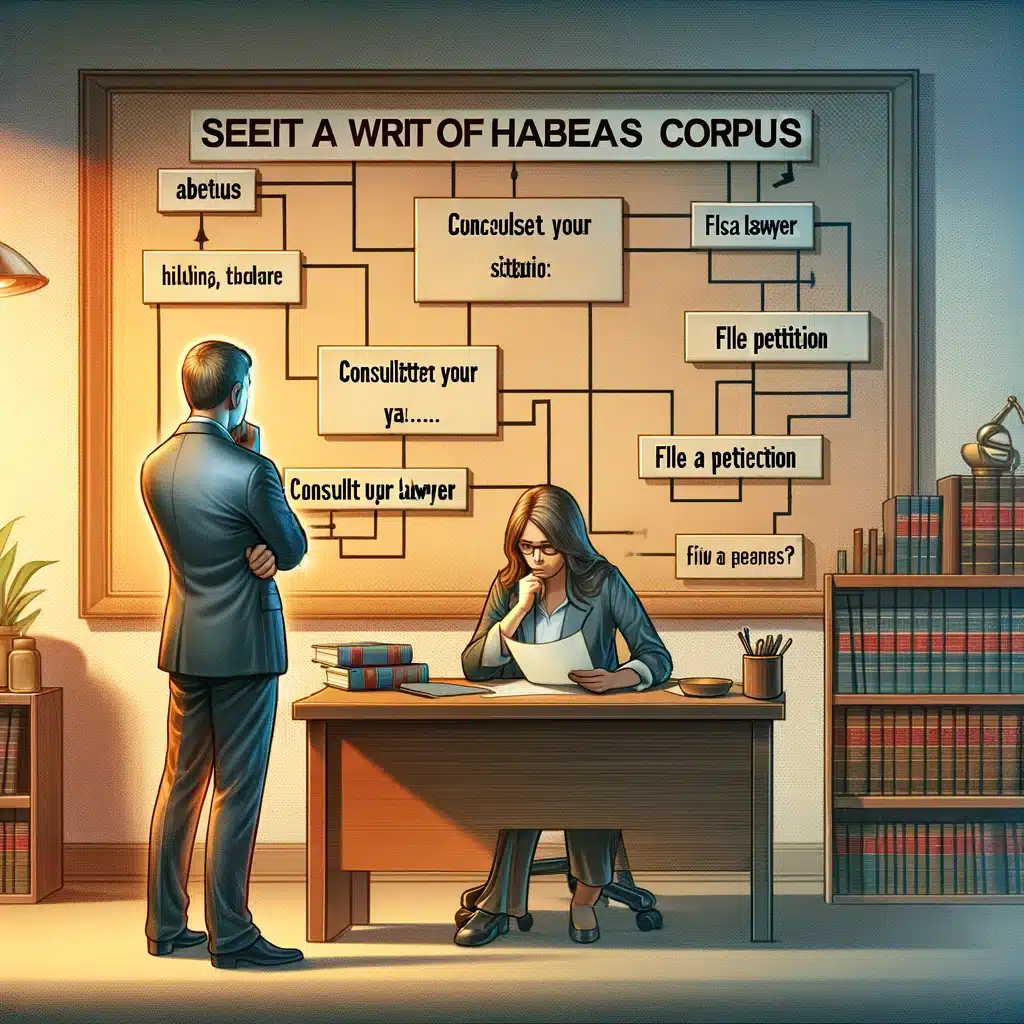Recognizing the Function of a Post-Conviction Legal Representative in Seeking Justice After a Criminal Sentence
In the complex landscape of post-conviction lawful procedures, the function of a post-conviction legal representative is crucial in navigating the course to justice after a criminal sentence. Past the confines of a trial, these legal professionals participate in a complex technique focused on revealing new proof, challenging legal mistakes, and supporting for their clients' legal rights. The details of post-conviction job require a blend of legal acumen, investigatory skills, and critical believing to decipher the intricacies of a case and seek opportunities that may have been forgotten or underexplored. As the quest of justice extends past the confines of first procedures, the role of a post-conviction attorney emerges as a sign of hope for those looking for to correct oppressions and recover their rights within the lawful system.
Post-Conviction Lawyer's Investigative Job
Post-conviction lawyers participate in careful investigative job to discover new proof, step-by-step errors, or transgression that might potentially lead to rescinding a sentence. This investigative stage is vital in the post-conviction process as it intends to determine any type of overlooked information or legal bad moves that might have affected the outcome of the first trial. Post-conviction lawyers explore instance data, witness testimonies, and lawful paperwork with a fine-tooth comb, browsing for any kind of inconsistencies or abnormalities that might be grounds for charm.
With complete investigation, post-conviction attorneys intend to clarify possible oppressions that might have taken place during the original test. They might perform interviews, seek advice from professionals, and review forensic proof to develop an engaging situation for their customers. By scrutinizing every facet of the lawful proceedings, post-conviction attorneys function tirelessly to discover any type of aspects that may have affected the verdict. Eventually, their investigative work plays an essential duty in the quest of justice and the prospective reversal of wrongful sentences.
Crafting Appeals and Petitions
In the quest of justice after a conviction, proficient legal representatives diligently craft appeals and requests to existing engaging arguments for the reconsideration of legal decisions. Crafting appeals and applications calls for a deep understanding of the lawful system, attention to detail, and tactical reasoning. Post-conviction attorneys examine trial records, determine potential errors or infractions of legal rights, and create legal debates to test the conviction or sentence.
When crafting an allure, lawyers concentrate on highlighting legal errors that may have affected the outcome of the instance. They research situation legislation, statutes, and lawful criteria to sustain their debates. Requests, on the other hand, may include offering brand-new evidence that was not readily available during the test or demonstrating adjustments in the law that necessitate a review of the sentence.
Furthermore, post-conviction attorneys should follow rigorous step-by-step guidelines and target dates when submitting appeals and petitions. They have to offer their disagreements clearly and persuasively to convince the court to give relief to their customers. With meticulous crafting of appeals and applications, post-conviction lawyers strive to safeguard justice for individuals who have been wrongfully convicted or unfairly sentenced.

Seeking Post-Conviction Alleviation
Looking for relief after a sentence requires a critical and persistent technique by skilled lawyers. Post-conviction relief incorporates a variety of lawful systems developed to test the legitimacy of a sentence or sentence (wisconsin federal habeas lawyer). These opportunities include submitting movements for a brand-new test, seeking appeals, seeking writs of habeas corpus, and offering recently discovered proof. Post-conviction attorneys play an essential duty in browsing these intricate treatments, guaranteeing that all legal alternatives are checked out to fix oppressions that may have happened during the test or sentencing stage.
One typical form of post-conviction alleviation is submitting a petition for post-conviction alleviation, normally based upon claims of inefficient help of counsel, prosecutorial transgression, newly uncovered evidence, or constitutional offenses. These petitions require a detailed analysis of the trial record, legal study, and persuasive campaigning for to persuade the court to give alleviation. Experienced post-conviction attorneys possess the skills and expertise needed to determine viable lawful cases, conduct examinations, and existing engaging disagreements to safeguard relief for their clients. By diligently pursuing post-conviction alleviation, these lawyers make every effort to deal with miscarriages of justice and support the principles of justness and due process in the criminal justice system (Lawyer).
Making Use Of Forensic Proof
When challenging a conviction or sentence, the calculated usage of forensic proof can be a powerful device in post-conviction lawful procedures. Forensic evidence incorporates a variety of scientific methods utilized to examine crimes and develop realities in court. Post-conviction lawyers can leverage forensic proof to test the credibility of sentences by providing brand-new clinical findings that were not readily available throughout the initial test.

Participating In Sentence Alterations
Post-conviction legal representatives may discover the possibility of sentence alterations as a legal opportunity to address disproportionate or unjustified sentences handed down in criminal cases. Sentence adjustments entail seeking changes to the terms of an accused's sentence after a conviction has actually happened. These adjustments can consist of decreasing the size of a sentence, changing the kind of punishment imposed, or discovering alternative sentencing choices.
Post-conviction lawyers can go after sentence alterations through various lawful devices, such as filing movements for sentence decrease, appealing for caring launch, or negotiating appeal deals for decreased sentences. They must carefully examine the circumstances of the case, analyze the legal grounds for looking for a modification, and existing engaging arguments to the court sustaining the need for a modified sentence.
Involving in sentence adjustments requires a detailed understanding of criminal regulation, punishing standards, and the details treatments associated with looking for post-conviction relief. Post-conviction lawyers play a critical duty in supporting for fair and simply results by tough sentences that are unduly extreme or do not straighten with the principles of justice.
Verdict
In final thought, the role of a post-conviction attorney is important in looking for justice after a criminal sentence. Via investigatory work, crafting appeals and petitions, going after post-conviction relief, making use of forensic proof, and participating in sentence alterations, these attorneys play a crucial duty in advocating for their clients and guaranteeing that their legal rights are promoted within the criminal justice system. Their commitment and know-how are crucial in navigating the intricacies of post-conviction proceedings and attaining a reasonable end result for people dealing with criminal convictions.
Comments on “Comprehending Habeas Corpus: An Attorney's Overview to Legal Rights”